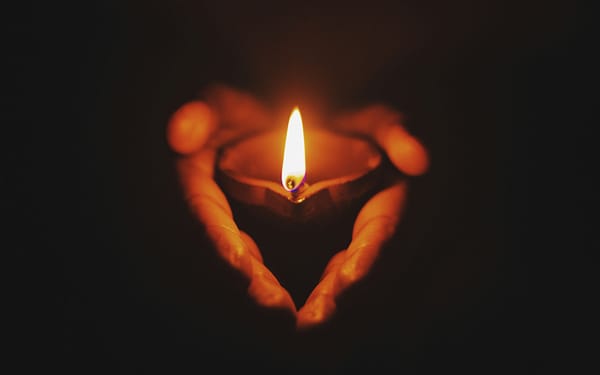"Wake up, Neo" - Part 1

Before Re-Entering the Matrix
This article goes deep into the themes and ideas of The Matrix and assumes you already understand and remember the movie well. If you aren’t familiar with the plot, characters, or its unique universe, much of what follows might not make sense. What comes next is intended for readers who already know the film and are ready to reflect further.
These whispers at the threshold of experience mark not a beginning, but a shift in perception—an invitation to dismantle the edifice of constructed reality. It is a call to witness the subtle dance of conditions that masquerade as a fixed self and a solid world. These appearances, however vivid, are but fleeting formations, arising and dissolving within the vast emptiness that underlies all phenomena. To perceive this is to glimpse the inherent freedom that lies dormant within the mind. Just as Neo’s awakening in the Matrix unveiled the illusory nature of his perceived reality, so too can we unveil the layers of mental projections that obscure the true nature of being.
The root of suffering lies not in external circumstances, but in the mistaken identification with these fleeting formations. Most beings live immersed in the delusion that they possess a permanent, independent self, a narrative built upon the shifting sands of sensation, thought, and emotion. This mistaken belief generates craving and aversion, binding us to a cycle of suffering. To see that these phenomena are intrinsically empty – lacking inherent existence – is the first step on the path of Lokottara Dhamma: understanding that no-thing inherently binds us. It is not a liberation from something, but a recognition of what always was – the boundless, unconditioned awareness itself.
Neo’s journey mirrors this profound realization. Initially, he is lost within the confines of the Matrix, believing in the solidity of his identity and the limitations of his potential. The “red pill” is akin to a momentary shattering of habitual patterns of perception, exposing the contingent nature of his reality. Like the practitioner of Lokottara Dhamma, Neo's freedom is not a sudden acquisition, but a gradual unfolding. Each encounter with adversity, each perceived failure, is a mirror reflecting the clinging to a fabricated self. These moments are not setbacks but invaluable opportunities to return to the primordial stillness, to re-cognize the empty nature of all appearances.
Practical application involves skillful engagement within this fluid landscape. We do not “escape” the world; we navigate it with a deepened understanding of its impermanence. Just as Neo learns to move through the Matrix with increasing proficiency, we too can cultivate clarity and precision in our actions, grounded in the knowledge that all phenomena are dependent origination – arising interdependently and ceasing with the cessation of their conditions. When challenged, we notice the arising of mental formations – fear, desire, the insistence on a fixed identity. Instead of reflexive reaction, we pause, observing these formations as formations – recognizing their empty nature. This is the essence of the Middle Path – not avoidance, but discerning action rooted in the wisdom of emptiness.
This understanding fosters a profound shift in our relationships, both with ourselves and others. Recognizing the lack of inherent self diminishes defensiveness and reactivity, cultivating genuine compassion. We perceive that all beings are likewise aggregates of conditions, shaped by forces beyond immediate comprehension. This is not detachment, but a deeper presence, a responsiveness born of profound empathy. It opens the door to more authentic interactions, where the need to impose a fixed identity dissolves.
Over time, these moments of awareness accumulate, strengthening the mind’s capacity to meet life without clinging. Each act of observation, of pausing in the flow, reinforces the underlying wisdom. As Neo’s understanding deepened through trial and repetition, so too does our insight blossom as we continuously return to the source—to the still, silent awareness that witnesses all phenomena. The realization of emptiness does not diminish life; it reveals its inherent vibrancy, its boundless potential. We move with greater fluidity, act with greater wisdom, and embrace life with a profound and effortless acceptance.
Thus, the path of Lokottara Dhamma and Neo’s story converge: liberation is not a distant destination, but a present realization. Freedom is not a reward, but the experience of seeing through the illusion, of letting go of the false narratives. Each moment presents a choice: to act from the delusion of permanence, or to move with the fluidity of reality. In embracing the latter, we live as Neo does, and as the awakened practitioner does – with clarity, compassion, and the profound freedom that arises from knowing nothing is inherently real.
Update – January 17, 2026
I've published a second part to the original "Wake Up, Neo" article. This time I dive deeper, using specific scenes and dialogue from The Matrix and examining them through the lens of Buddhist philosophy.
New part 2 – "Wake Up, Neo: Return to the Matrix":
Observe the next unfolding with equanimity.




